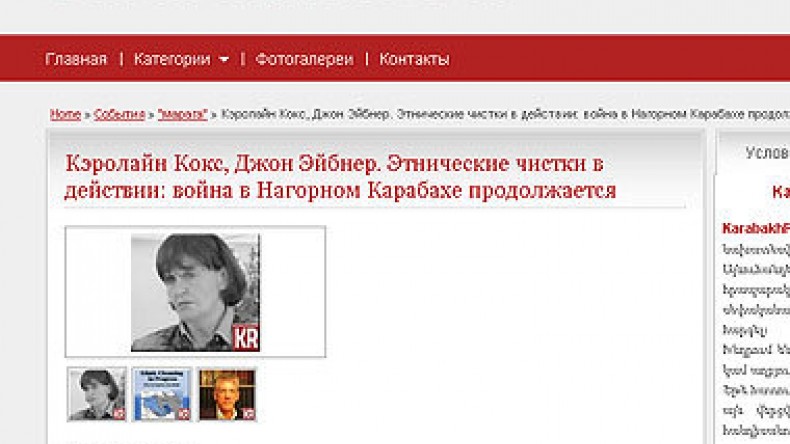
Baroness Caroline Cox: Reports about massacre of Armenians in Maragha never reached the world’s headlines
Maragha: The name of this village is associated with a massacre which never reached the world’s headlines, although at least 45 Armenians died cruel deaths, Caroline Cox and John Eibner write in the book "Ethnic Cleansing in Progress: War in Nagorno Karabakh,” Karabakhrecords.info reports.
According to the material, it is written in this book that during the Christian Solidarity International mission to Nagorno Karabakh in April, 1992 news came through that a village in the north, in Mardakert region, had been overrun by Azeri-Turks on April 10 and there had been a number of civilians killed. A group went to obtain evidence and found a village with survivors in a state of shock, their burnt-out homes still smouldering, charred remains of corpses and vertebrae still on the ground, where people had their heads sawn off, and their bodies burnt in front of their families.
According to the book, at least 45 Armenians had been massacred and 100 were missing, possibly suffering a fate worse than death. In order to verify the stories, the delegation asked the villagers if they would exhume the bodies which they had already buried. In great anguish, they did so, allowing photographs to be taken of the decapitated, charred bodies. Later, when asked about publicizing about this tragedy, they replied they were reluctant to do so as “We Armenians are not very good at showing our grief to the world.”
According to the article, the authors of the book believe it is important to put on record these events and the way in which they have been interpreted and portrayed by the Armenians themselves, and by the international media as the international public opinion is inevitably shaped by media coverage.
The international media did not cover the massacre of the Armenians in Maragha at all. Consequently, in the eyes of the world, the armed forces of the Armenians of Nagorno Karabakh have been made to appear more brutal than those of the Azerbaijanis; in reality, evidence suggests that the opposite is more likely to be true, the authors write.
With the efforts of the Information and Public Relations Center of the Administration of the President of Armenia the truth about the genocide in Maragha became more widely-known and replicated. The documentary “Maragha, 10 April 1992. An Ordinary Genocide https://www.youtube.com/watch?v=NwNL7t4iGW0 was shot, the eyewitness testimonies, photos and videos taken on that fearsome day were compiled and published on various websites http://karabakhrecords.info/gallery/category/events/maragha-case/, the website maragha.org http://maragha.org/index_ru.html is operating.
Related:
Maraga: oil interests, aggressive Armenophobia and the silence of the international community
Bakur Karapetyan’s book on Margushavan and Maragha massacres released
22 years passed since massacre day organized by Azerbaijani military units against Armenian civilians in Maragha
Maraga - a contempotary Golgotha
Newsfeed
Videos






























